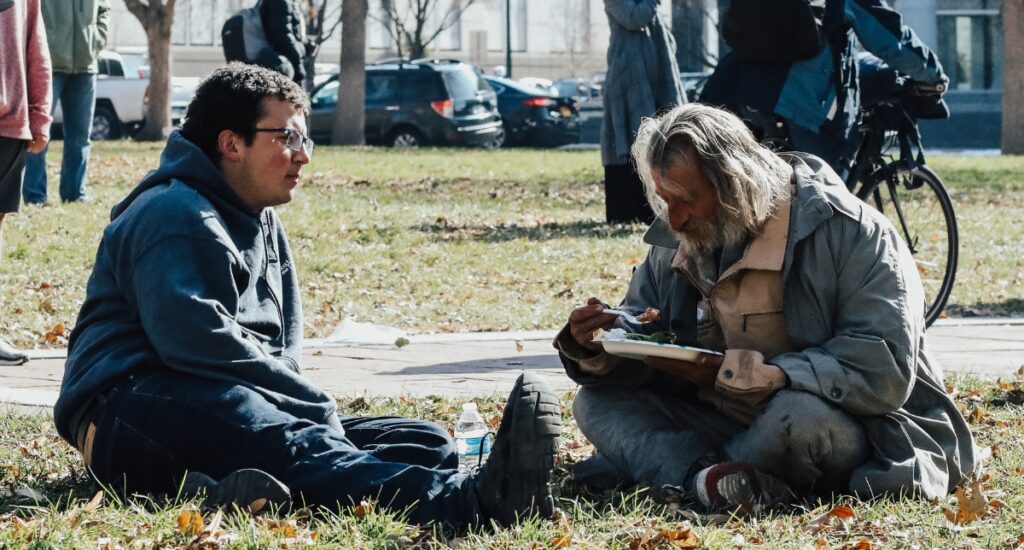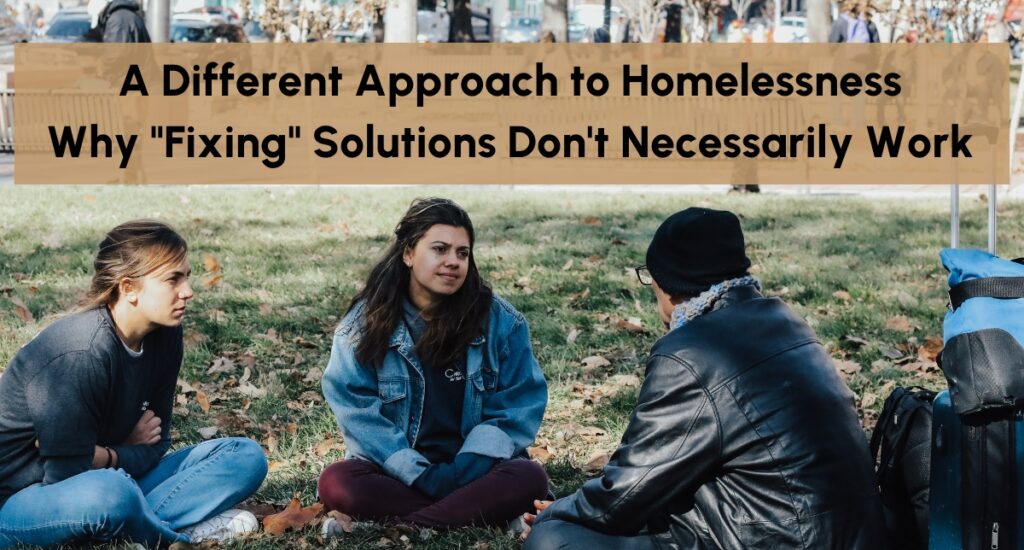When discussing homelessness, it’s common for well-intentioned people to suggest solutions to “fix” the situation. For example, when we talk about a specific person living on the streets, they often want to know why that person is homeless and what can be done to help. These comments usually come from a place of compassion.
However, this approach risks unintentionally reducing a person experiencing homelessness to a problem that needs to be solved or fixed before recognizing the individual’s humanity and inherent dignity.
Seeing a Person, not a Problem
While it’s natural to want to help, the truth is that each homeless person experiences a complex situation shaped by various personal and systemic factors and there is no easy way to help. Many have followed complicated paths that led them to the streets, in some cases, years or even decades ago.
Often, conventional solutions fail because many homeless individuals have lost trust in people, institutions, and solutions, often due to past trauma or experiences of betrayal, which is only exacerbated by the constant stress and danger of life on the streets.
While many valuable resources are available for homeless people—such as healthcare, detox programs, shelters, housing, and employment opportunities—these services often require the person to seek them out. Unfortunately, due to the state of isolation they live in, mistrust, or a multitude of personal barriers, many do not or cannot reach out for the help they need.
Even well-meaning caseworkers often face resistance when they reach out to offer assistance or guide them to available resources.
Christ in the City missionaries hear from their homeless friends in a variety of expressions that, when some social workers approach them, they feel like they are seen not as individuals but as problems to be solved. This approach can lead many to reject help or avoid contact, particularly those who have become more resilient in their homelessness.
The Missing Piece: Healthy Relationships
A crucial element often missing in our efforts to address homelessness is the power of healthy relationships. Many people living on the streets have exhausted their friends, family, or acquaintances’ support networks. In addition, the relationships they do have with others on the streets are often unhealthy and provide little real support. Many of them have told me that they don’t have anybody to talk to.
The simple yet profound element of human connection is often the most significant missing piece in addressing the growing homeless population.
To improve a homeless person’s situation, it is often essential to dedicate time to establishing a relationship based on trust and understanding. It also requires consistently making efforts to see each individual as a person with a story, deserving of dignity and respect.
Of course, it’s easier said than done. Admittedly, it can seem inefficient and expensive for an organization to hire staff to spend hours, days, or even months connecting with a single homeless person.
Breaking through their isolation, gaining their trust, and, with compassionate friendship, guiding them on a path to recovery takes time, but it’s worth it. There is no easy solution, but acknowledging what is missing is already a step in the right direction.

Just one friend
As full-time volunteers for one year, Christ in the City missionaries have the time to go out into the city, reach out to people living on the streets, and meet them where they are. Their goal is simply to listen to their stories and start conversations without judgment. They bring the joy and the love of Christ, who is the one who has the power to heal such deep wounds. With time, trust is built, and even friendships develop. And within these relationships, the door to healing and recovery slowly begins to open.
Of course, not everyone is called to this type of mission work. But imagine a world where each homeless person had one friend—a single person they could talk to from time to time. One person who listens without judgment offers a kind word or simply acknowledges their presence. One person who sees them as more than their circumstances. One person that prayed for them, by their name.
That “one friend” would most probably be the little light at the end of the tunnel, giving them hope to start a road to recovery. What if all of us sought to be one of these friends for someone on the streets?
Ultimately, the key to helping people experiencing homelessness, especially those with fewer chances to recover, isn’t just about offering solutions but about offering ourselves—our time, our empathy, and our understanding. When we focus on building trust and friendship, we start to see the person, not the problem. And that is where true transformation begins.
At Christ in the City, we strive to see a homeless person not as a problem to be fixed but as a person to be loved.
